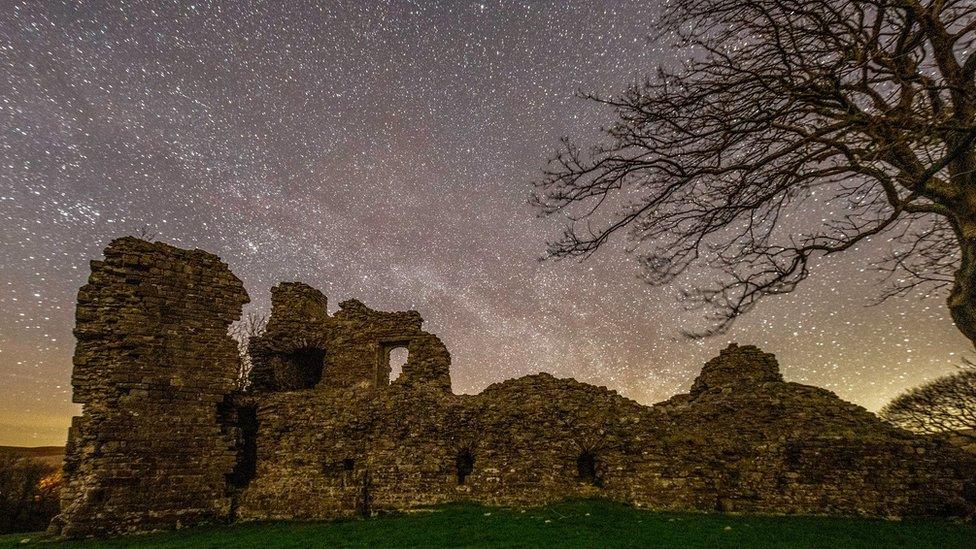Yorkshire Dales: Dark sky sites set for added protection measures
- Published
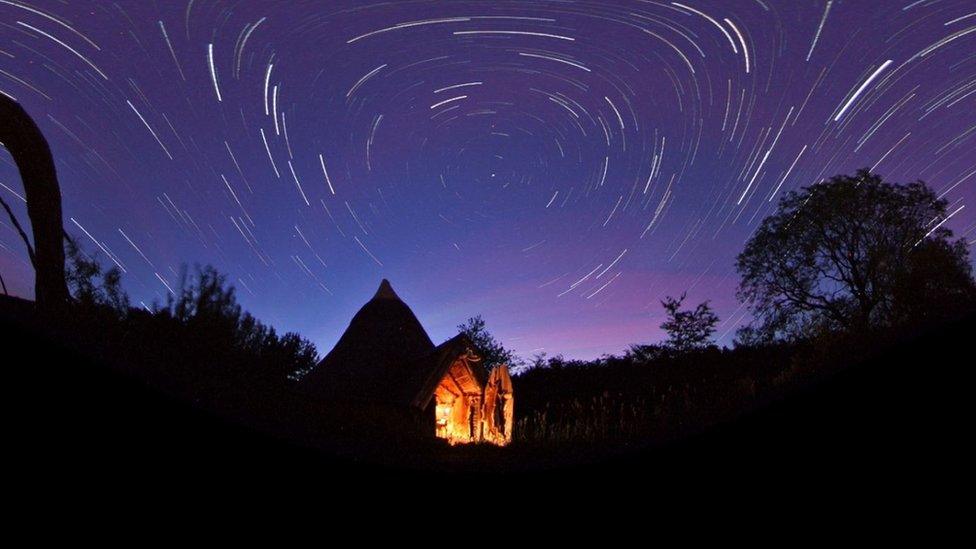
Astronomers found night skies in Upper Nidderdale and Masham were some of the least affected by light pollution in England
Strict new light pollution rules have been proposed to help protect some of the darkest skies in England.
Harrogate Borough Council wants to bring in fresh controls for all new outside lights in the Nidderdale Area of Outstanding Natural Beauty (AONB).
It comes after parts of Upper Nidderdale and moorland near Masham were found to be among the areas least affected by light pollution.
If approved the proposals will go out for public consultation.
Under the plans new outside lights would have to be shielded, point downwards and automatically switch off.
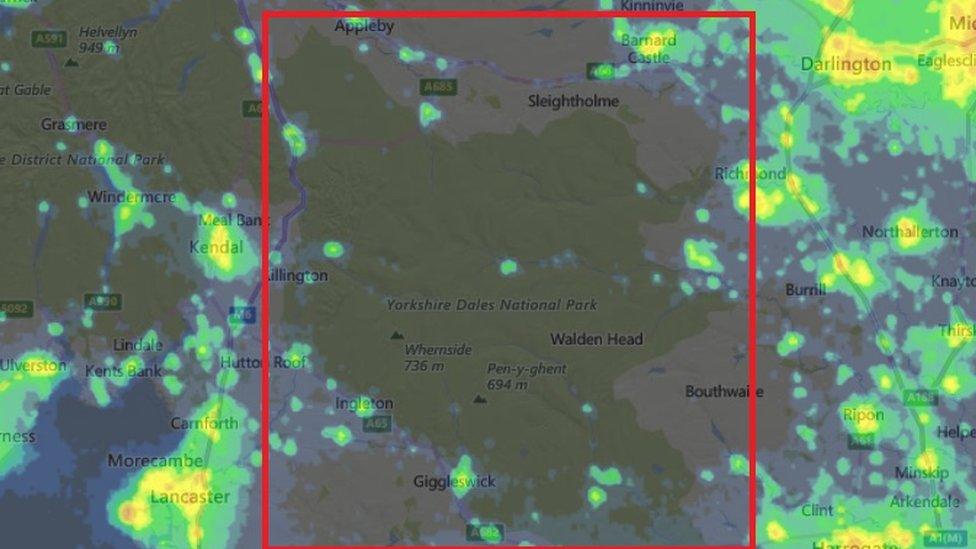
The map shows just how little light pollution there is above the Yorkshire Dales
Researchers said the Nidderdale AONB contained "some of the darkest skies in England as well as a diverse range of wildlife and habitats", according to the Local Democracy Reporting Service.
According to the Campaign to Protect Rural England (CPRE) dark skies reduces stress and increases a sense of peace.
The countryside charity also warned that in an area like Nidderdale AONB artificial light could disturb animals' sleep and reduce foraging for nocturnal species such as bats.
In response the council has drawn up a fresh light pollution planning document for the area.
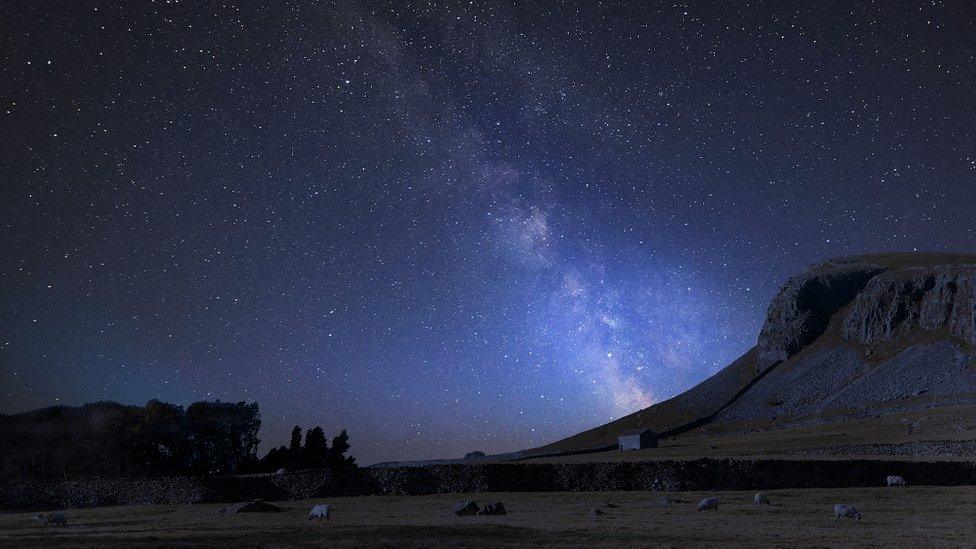
The Milky Way is visible over Norbert Ridge in the Yorkshire Dales National Park
The document identified light pollution from farm and commercial buildings as "the most obvious source" of light pollution in the darkest zone of the AONB.
It suggested all new outside lights in the zone should comply with the latest design standards and include a lighting plan prepared by a lighting professional.
The proposals are due to go before Conservative cabinet member for planning Tim Myatt on Tuesday and, if accepted, would go out for public consultation, officials said.
In 2020 The Yorkshire Dales and North York Moors national parks were designated Dark Sky Reserves.
The special status was awarded by the International Dark-Sky Association which said the parks were "global leaders in dark-sky conservation".

Follow BBC Yorkshire on Facebook, external, Twitter, external and Instagram, external. Send your story ideas to yorkslincs.news@bbc.co.uk or send video here.
Related topics
- Published8 December 2020
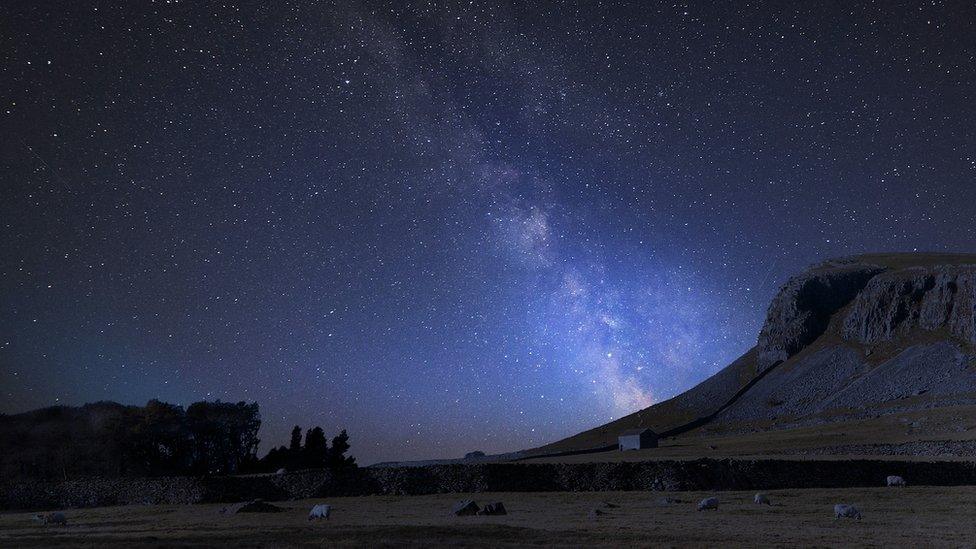
- Published1 July 2020
